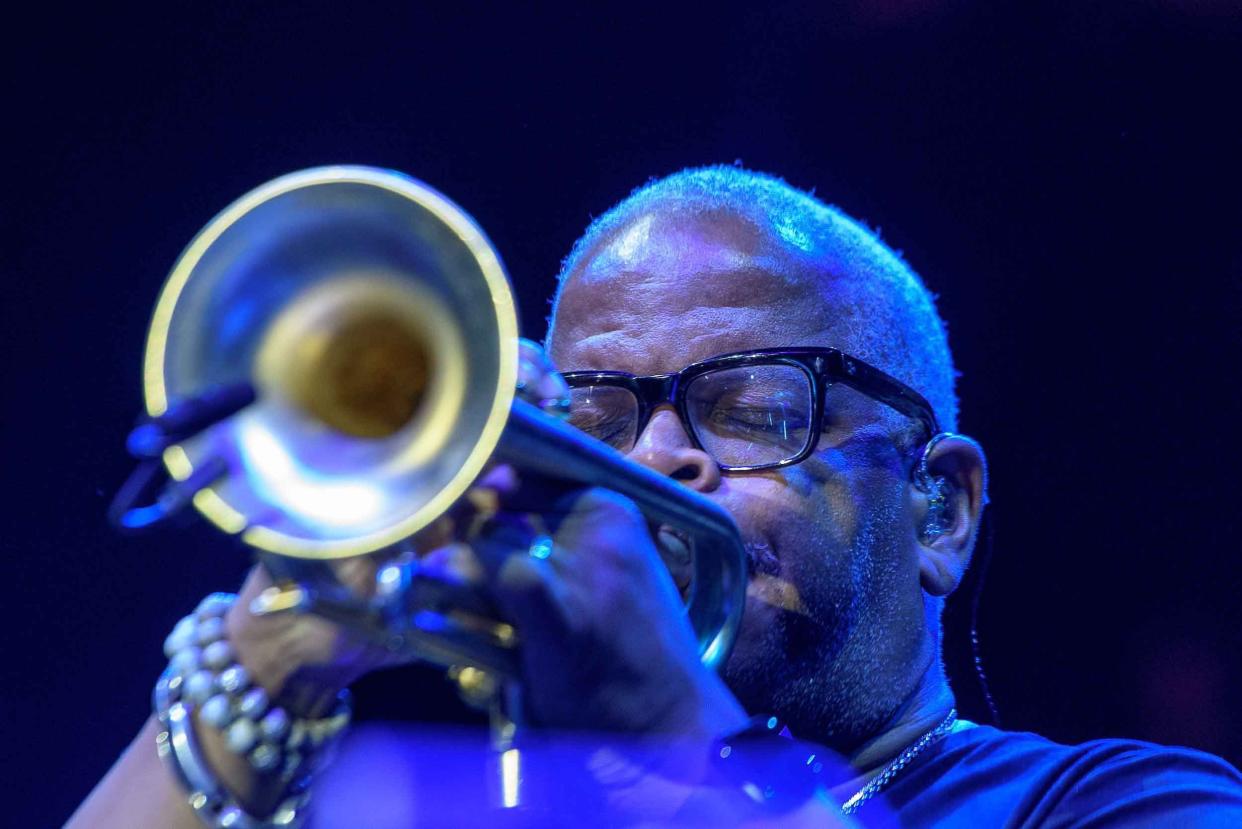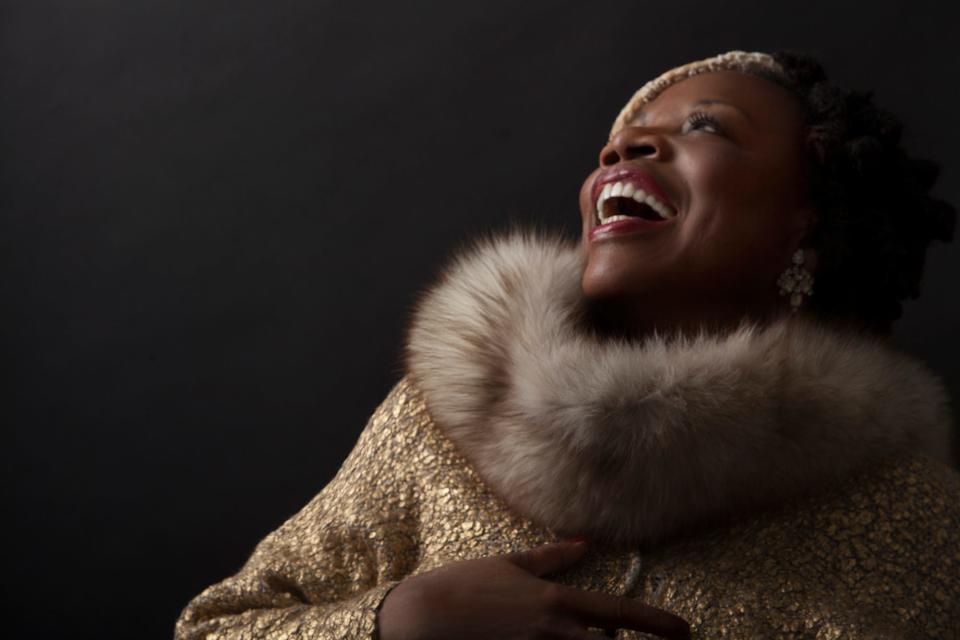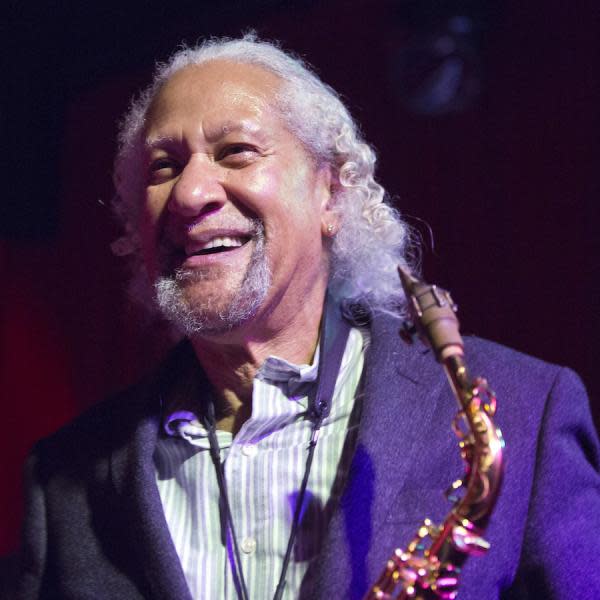Notes and tones: Jazz Masters announcements among best times of year

- Oops!Something went wrong.Please try again later.
- Oops!Something went wrong.Please try again later.
- Oops!Something went wrong.Please try again later.
This is one of my favorite jazz times of the year — and one of my favorite annual Tribune submissions.
For one thing, as noted in a pair of recent entries, I find it extremely satisfying that there seem to be an ever-increasing number of jazz festivals taking place throughout the country and around the world. Once they roll out around Memorial Day weekend, they continue throughout the summer months into the fall.
Second, presenting organizations have announced, or are in the process of announcing, their respective seasons. Just seeing all the musicians and ensembles performing all over the place feels like a shot of jazz in the arm.
Third, this is the time when the National Endowment for the Arts announces its Jazz Masters selections — what it labels “fellowships.” Some people might now be aware of the program, but for those who are not, the recognition, which arrives with a $25,000 check, represents the highest honor bestowed on people who toil in jazz.
Being named an NEA Jazz Master is tantamount to receiving an unofficial, but decidedly legitimate, lifetime achievement award given “to individuals,” as the agency’s press release Wednesday states in part, “who have made exceptional contributions to the advancement of jazz.”
The 2024 honorees — the award is actually given next year in a formal ceremony — include a trio of significant musicians. Legendary saxophonist Gary Bartz, whose nearly six-decade body of work approaches the astounding; the somewhat under-the-radar Amina Claudine Myers, who continues to be a significant organist-pianist, vocalist and educator; and trumpeter Terence Blanchard who, over time, not only garnered attention for his straight-ahead jazz work, but also as director Spike Lee’s go-to composer for numerous films — as well as his history-making opera, “Fire Shut Up in My Bones” that, in fall 2021, became the first Black composer's work presented by the Metropolitan Opera.

Each year, the NEA includes a candidate cited for their measurable “jazz advocacy” work; it can also be a musician — as was the case in 2022 with saxophonist Donald Harrison — but more often is reserved for a non-musician whose measurable body of work, though housed within the jazz community at large, is steeped in the sphere that encircles those who deliver great musicianship.
Named specifically in honor of A.B. Spellman, the poet, author, music critic and 30-year NEA administrator who has made supporting jazz in the United States a significant portion of his life’s work, the 2024 recipient is Willard Jenkins who, I can personally attest, having crossed paths with him on dozens of occasions, certainly embodies and deserves the advocacy-focused award.
I first heard of Jenkins close to 40 years ago when he worked as an administrator at Arts Midwest, the Upper Midwest regional arts agency. Jenkins was a principle contributor to a series of booklets I would classify as “how-to” instructional manuals on the various tasks required of those who work within the non-profit sector.
Now 74, Jenkins, a Washington D.C.-area fixture for years, continues his jazz activity in full-throttle mode. He’s a long-time broadcaster on WPFW-FM, Pacifica Radio’s area community station; his latest book, published last year, is “Ain't But a Few of Us – Black Music Writers Tell Their Story” (Duke University Press). Jenkins’ jazz C.V., if that’s the proper categorization, incorporates his involvement as both educator and historian; however, his work as a music presenter is equally impressive — or even more so.
Having served as artistic director of the Beantown Jazz Festival (Boston) and Tri-C Jazz Festival (Cleveland), among others, he has, in the same position, taken the DC Jazz Festival to far greater, ever-growing heights, developing it into one of the country’s premiere concentrated jazz showcases.
In hindsight, it is perhaps a bit ironic that I found myself sitting next to Jenkins at a panel titled “Legends of Piano Round Table” during the inaugural Jazz Congress, which took place in January 2018 under Jazz at Lincoln Center’s Manhattan roof. The gathering attracted all sectors of the jazz industry in a three-day period. Broadly speaking, the purpose was for a couple thousand people to discuss and dissect “the global state of the ‘Jazz Nation.’”
The piano panel, which took place in JALC’s 450-seat Appel Room, featured three extraordinary musicians. With The Bad Plus co-founder Ethan Iverson, himself an accomplished pianist, serving as moderator, NEA Jazz Masters Kenny Barron and Joanne Brackeen along with Harold Mabern sat in a semi-circle. With Iverson mainly tossing softballs, the conversation, by and large, resembled a lovefest.
At one point — and I’m paraphrasing here —Jenkins turned to me, rhetorically asking, then answering his own question, “How come Mabern hasn’t been named a Jazz Master? ... He should be a Jazz Master.”
I concurred.

Sometimes Jazz Masters selections, which date to 1982 with the first three being trumpeters Roy Eldridge and Dizzy Gillespie, and keyboardist, composer and arranger Sun Ra, feel a bit arbitrary. There are “no-doubters” such as Sonny Rollins, Miles Davis and Marian McPartland. There are also non-selections that, as in the case of Mabern, can make you scratch your head a bit.
To ease some controversy, it was determined only living musicians should be eligible; thus, upon his death at age 83 in 2019, Mabern became ineligible. He’s in exceptionally good company, though, given that the likes of Louis Armstrong, Duke Ellington and Charlie Parker don’t qualify either. That’s OK. Every jazz fan knows each is certainly a Jazz Master.
Jenkins, along with Bartz, Blanchard and Myers, will be feted with a star-studded concert and presentation at the Kennedy Center featuring previous Jazz Masters and others on April 13, 2024. The event streams live and is archived on several websites as well. I, for one, will certainly tune in.
Jon W. Poses is executive director of the “We Always Swing” Jazz Series. Reach him at jazznbsbl@socket.net.
This article originally appeared on Columbia Daily Tribune: Notes and tones: Jazz Masters announcements among best times of year

